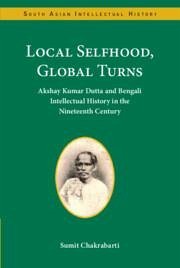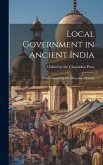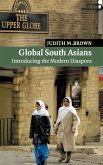"The book examines the works of Akshay Kumar Dutta (1820-1886), who can be seen as ideologically inhabiting the cusp between religion and rationalism - the two most crucial avenues of debate and discussion in the public sphere in nineteenth-century Bengal. While nineteenth-century Bengal has been an important discourse within South Asian history, major figures of reform such as Rammohun Roy, Debendranath Tagore, Iswarchandra Vidyasagar, and Keshub Chunder Sen have generally been the focus. The book attempts to rescue Dutta from the clutches of academic amnesia, and to locate him as one of the foundational figures of intellectual refashioning among the common albeit educated public in nineteenth-century Bengal"--
Hinweis: Dieser Artikel kann nur an eine deutsche Lieferadresse ausgeliefert werden.
Hinweis: Dieser Artikel kann nur an eine deutsche Lieferadresse ausgeliefert werden.








